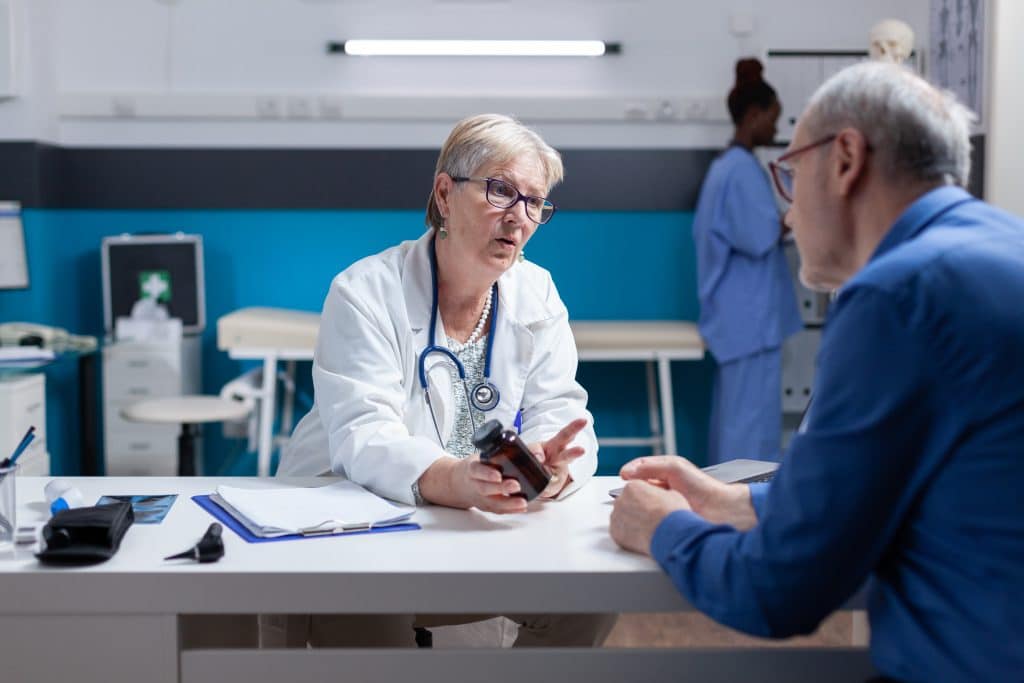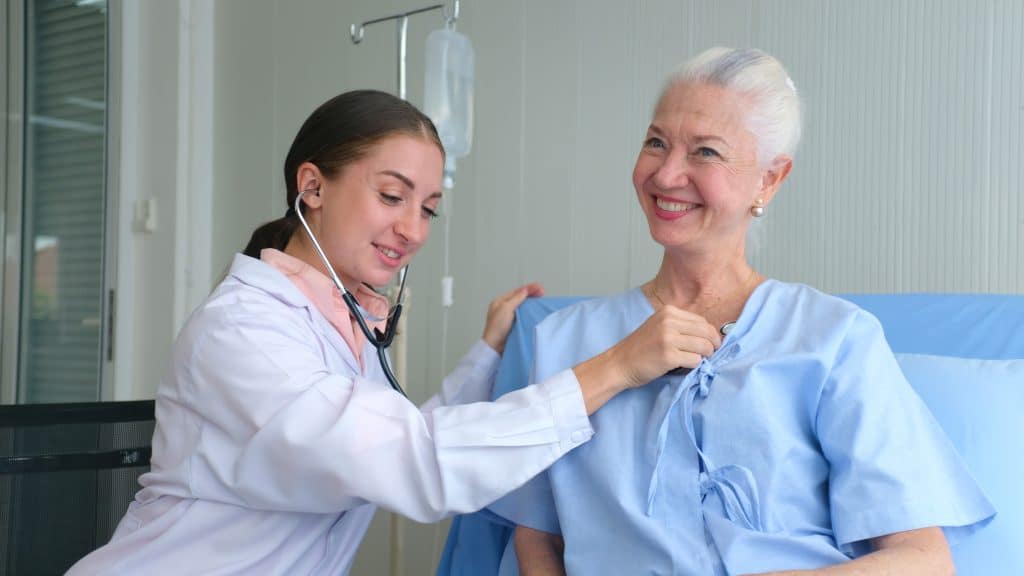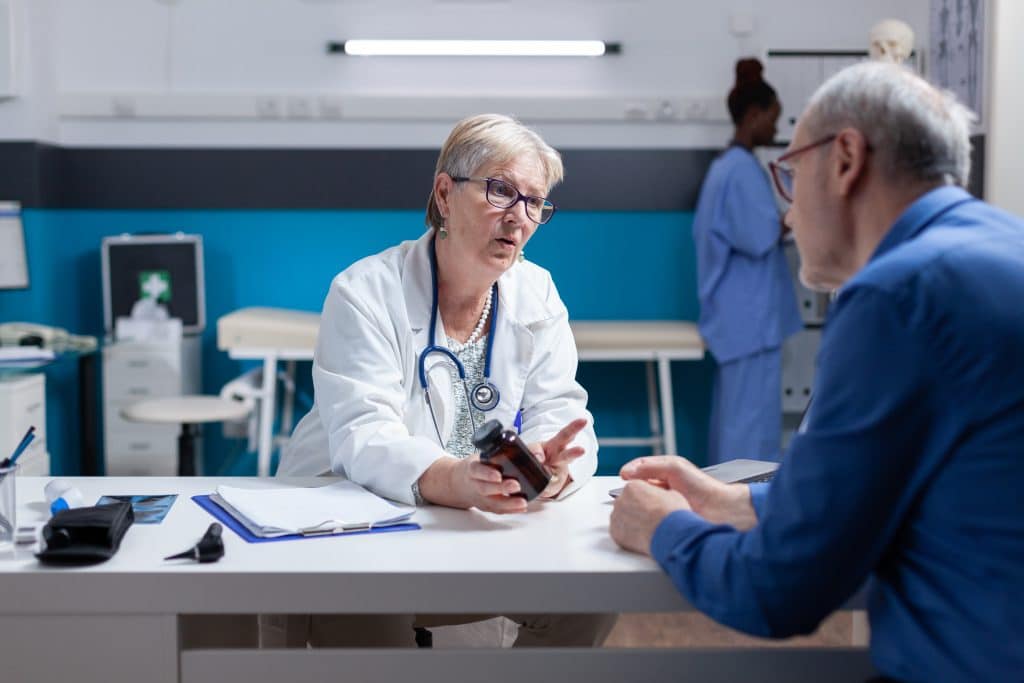A colonoscopy is a procedure that many people undergo to screen for colorectal cancer. It can be scary, but knowing what to expect is crucial before you go through the procedure. And this article is here to teach you everything you need to know about getting a colonoscopy. It will discuss what happens during the procedure, how long it takes, and what kind of aftercare is necessary. It will also dispel some of the myths that are commonly associated with colonoscopies.
Contents
- How A Colonoscopy Is Performed
- Tips To Prepare For A Colonoscopy
- Change Your Diet
- Consume A Prep Laxative
- Prepare Your Bathroom
- Aftercare Needed After A Colonoscopy
- Common Myths About Colonoscopies
- The Procedure Is Painful
- You Only Need A Colonoscopy If You Have Symptoms
- Understand The Importance Of A Colonoscopy!
- Related
How A Colonoscopy Is Performed

A colonoscopy is a medical procedure used to examine the large intestine (colon) for signs of disease, such as cancer. The colonoscopy involves inserting a long, flexible tube (endoscope) into the rectum and slowly moving it through the entire length of the colon. The endoscope has a light and a camera, which allows the doctor to see the inside of the colon. If the doctor finds any abnormal growths or areas of concern, they may take biopsies (tissue samples) for further testing.
The entire procedure usually takes 30-60 minutes, and patients typically take sedatives to help them relax during the exam. A colonoscopy is a vital tool in the early detection and treatment of colorectal cancer, and everyone over the age of 50 should have this procedure at least once every 10 years.
Tips To Prepare For A Colonoscopy
If you have a colonoscopy coming up, one of the most important things to know about it is what you should do to prepare. Here are a few tips:
Change Your Diet

For many people, the thought of undergoing a colonoscopy is daunting enough. But the preparatory diet required can seem like an added burden. Known as a clear liquid diet, this temporary way of eating cleans out the colon before the procedure. While it may not be the most appetizing way of eating, it is crucial to follow the diet closely to ensure a successful procedure.
The diet typically starts two days before the colonoscopy. You will need to avoid solid foods and focus on clear liquids during this time. This includes water, clear broths, sports drinks, and decaffeinated teas or coffees. You can also have strained juices, such as apple or cranberry juice, as long as they don’t have pulp. In addition, you’ll need to avoid alcohol, dairy products, and anything with artificial sweeteners.
While the diet may not be pleasant, it is vital to follow it closely to ensure a successful colonoscopy. By cleansing the colon beforehand, your doctor can get a better view of any potential problems. So if you have scheduled a colonoscopy, stock up on clear liquids and prepare for a few days of simple eating.
Consume A Prep Laxative

Along with following a liquid diet, another common way to prepare for the procedure is to consume a prep laxative. This type of laxative comes in a powder form that you mix with water and drink. The laxative works by drawing water into your colon, which helps to soften your stool and makes it easier to pass. It also helps to clear out any residual feces clinging to your colon’s walls.
The general rule is to start drinking the laxative the evening before your procedure. You’ll need to drink several doses over several hours and then continue drinking plenty of clear fluids until your procedure. While it’s certainly not pleasant, following these instructions will help ensure that you have a successful colonoscopy.
Prepare Your Bathroom

As you have just learned, you will take a prep laxative the night before to ensure that the colon is clean and visible during the procedure. This can cause some upheaval in the bathroom, but you can take some steps to prepare in advance. First, stocking up on supplies such as toilet paper, wet wipes, and gloves is essential.
It is also a good idea to have a few changes of clothes on hand in case of accidents. Finally, it is helpful to clear out the bathroom as much as possible to give yourself plenty of space. Taking these simple precautions can help make your colonoscopy prep go as smoothly as possible.
Aftercare Needed After A Colonoscopy

Although typically, the procedure is generally safe and well-tolerated, there are a few potential risks and side effects that patients should be aware of. For example, patients may experience bloating, gas, and cramping after the procedure as their bowel movements return to normal. Therefore, drinking plenty of fluids and avoiding strenuous activity for the first 24 hours after the procedure is essential.
In rare cases, patients may experience bleeding or perforation of the intestine. If you experience severe symptoms or bleeding, you must contact your doctor immediately. However, with proper care and follow-up, most patients recover quickly and without complications from a colonoscopy.
Common Myths About Colonoscopies

A colonoscopy is one of the most misunderstood medical procedures. Many people avoid getting a colonoscopy because they believe in some common myths. Let’s debunk a couple of these myths and set the record straight on why getting a colonoscopy is necessary.
The Procedure Is Painful
One of the most common myths about colonoscopies is that they are painful. However, this is usually not the case. Before the procedure, patients take a sedative to help them relax. They may also be given pain medication through an IV. During the procedure, patients may feel bloating, cramping, and pressure, but most do not find it painful. Many people report feeling no pain at all during their colonoscopy.
Most people only experience mild discomfort, which is usually brief and goes away quickly. Therefore, if you have a colonoscopy, there is no need to be anxious about it being painful. With modern medicine and technology, colonoscopies are usually quick and painless procedures.
You Only Need A Colonoscopy If You Have Symptoms
While it may be unpleasant to think about, colon cancer is a very real and potentially deadly disease. The good news is that colon cancer is also one of the most preventable types of cancer. One of the best ways to prevent colon cancer is to get a colonoscopy. However, there is a common myth that you only need a colonoscopy if you have symptoms.
This is not true. Most cases of colon cancer are asymptomatic in the early stages. That’s why getting a colonoscopy is important, even if you don’t have any symptoms. Don’t wait until it’s too late.
Understand The Importance Of A Colonoscopy!
It is crucial to clearly understand what to expect before, during, and after a colonoscopy. By preparing yourself physically and mentally, being aware of potential risks and side effects, and debunking common myths, you can ensure that your colonoscopy experience goes as smoothly as possible. Remember: getting screened for colon cancer can potentially save your life. Don’t hesitate to talk to your doctor about scheduling a colonoscopy.


